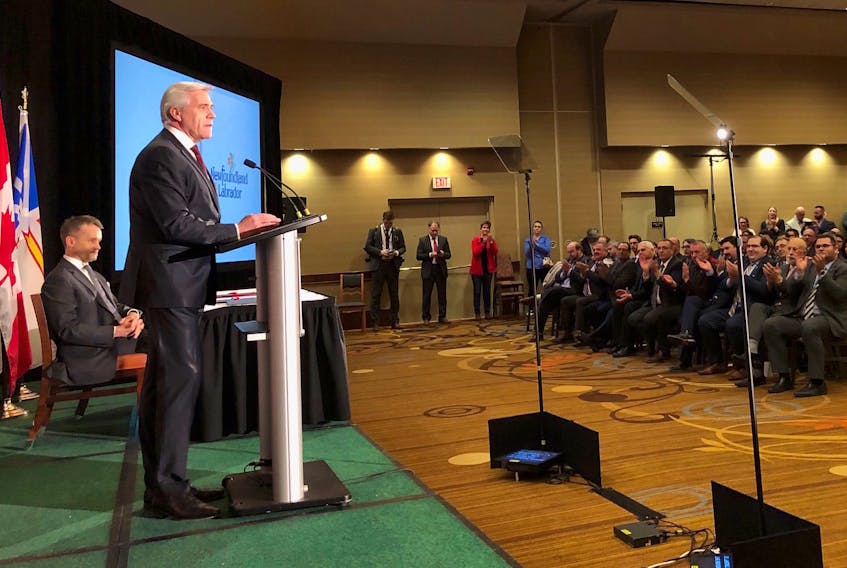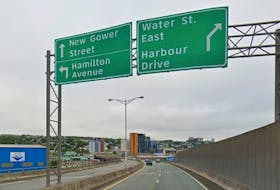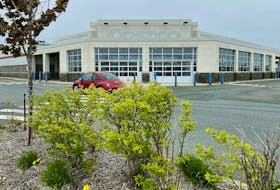ST. JOHN'S, N.L. — There was a moment, as the clock ticked toward midnight on March 31, when Premier Dwight Ball took out his phone and saw the Canadian and Newfoundland and Labrador flags pictured together.
The significance of announcing the renewed Atlantic Accord deal on the 70th anniversary of Confederation with Canada is not lost on Ball.
“The fact we were able to do it on March 31, the next day being the 70th anniversary, it was nice,” Ball said in an interview with the Telegram on Tuesday.
Ball says the conclusion of negotiations came within minutes of midnight – which could result in a later-than-usual budget announcement for 2019.
“I looked at that when I wrote the letter in the beginning and we said it had to be completed by March 31,” said Ball.
“We really worked hard to try and get the deal done before then. We would have loved to have it done before then. The budget will probably be later because of this, certainly in April. With most negotiations, it comes down to the deadline.”
But all sentiment aside, Ball says the Atlantic Accord review just completed is about a revenue stream for the province that wasn’t there before.
"The budget will probably be later because of this, certainly in April." — Premier Dwight Ball
The document signed by Ball and federal cabinet minister Seamus O’Regan on Monday was released publicly on Tuesday and lays out the terms of the agreement.
The agreement sees $3.3 billion in revenues coming to the province from the federal government’s dividends received from its 8.5 per cent stake in the Hibernia oilfield. Starting in 2045, the province will have to pay the federal government $800 million in eight instalments for the value of the shares.
Some of that money was coming to the province anyway through transfers of federal revenues from Hibernia – though Ball did not specify just how much. But Ball says the agreement far exceeds the money that would have come to the province through taxation.
Ball says had the province taken ownership of the federal stake in Hibernia outright, the benefit to the province would have been around $1 billion. The money paid to the province is equal to what the federal government would have seen with oil at $100 a barrel. As of Tuesday, the price per barrel was about $66.
Ball says federal Finance Minister Bill Morneau presented the $3.3-billion figure as the upside of the province taking the dividend, without taking on the risk of part ownership of the Hibernia platform.

“To take that volatility out, we took the guaranteed option. It was kind of an easy decision to make, to be honest with you. To take $100 a barrel of oil, when we’re more in the short-term range of the life of this agreement, given where we’ve been,” said Ball.
“The other side is, we knew if oil went through the roof, we had equity positions in other areas, in other fields that would be advantageous to us as well. It was about balancing out the portfolio, getting us a guaranteed revenue stream when we need it the most.”
Ball says because of the arrangement the province won’t be on the hook for decommissioning the Hibernia project. Ball says it’s hard to know exactly how much that will eventually cost the federal government, be he expects it would be “in the hundreds of millions.”
If the price of oil exceeds $100 a barrel throughout the life of the agreement, the extra money will go to the federal government. But the province won’t lose money if the price of oil remains below $100 a barrel.
That means Newfoundland and Labrador gets $2.5 billion in cash, with $1.9 billion of that coming before 2030. The money is set to go to the general revenue fund, with no specific earmarks for the cash right now, Ball said.
So if the money is free for the province to spend without rules from the federal government, why aren’t we talking about the money as a bailout from the federal government?
Ball says it came down to negotiation and honouring the spirit of the Atlantic Accord, which is to ensure this province sees the most benefits from its offshore resources.
“There was definitely a desire for the federal government here to work with us, recognized as a joint beneficiary of our offshore resources. They’ve done quite well off this 8.5 per cent over the years,” said Ball.
“I think, for us, it was making sure, making a good argument, being the primary beneficiary of our offshore resource. That’s the money side, but this does a lot more for us.”
Because the deal sees money for the province sooner rather than later, it means from 2045 to 2052, the province will pay more money out than it’s taking in from the deal during those years. In 2052, for example, the province will take $14 million from the deal, while paying out $100 million for its share.
"It was about balancing out the portfolio, getting us a guaranteed revenue stream when we need it the most.” — Ball
Ball says the earlier years of the deal will offset the later years.
“There is a cost, but the thing is, this thing would have paid for itself three or four times by then,” he said.
“The other thing is, we’ll have more mature fields. It gives us the opportunity to make provision for this, once we get beyond the fiscal crunch we’re facing right now.”
Ball says while he didn’t get one big cheque from Ottawa, the deal is consistent.
“We could have walked away with the big cheque, but the stability, the consistency is more important to me. Any one person, no matter who they are, couldn’t come in and just make this investment into something,” he said.
“We still get the impact of the debt, the net debt relief, we get the best of all of this and get 16 per cent off our net debt right away. We get this consistent cash stream that comes in every year to help us support programs needed in the province right now.”
Twitter: DavidMaherNL
RELATED









